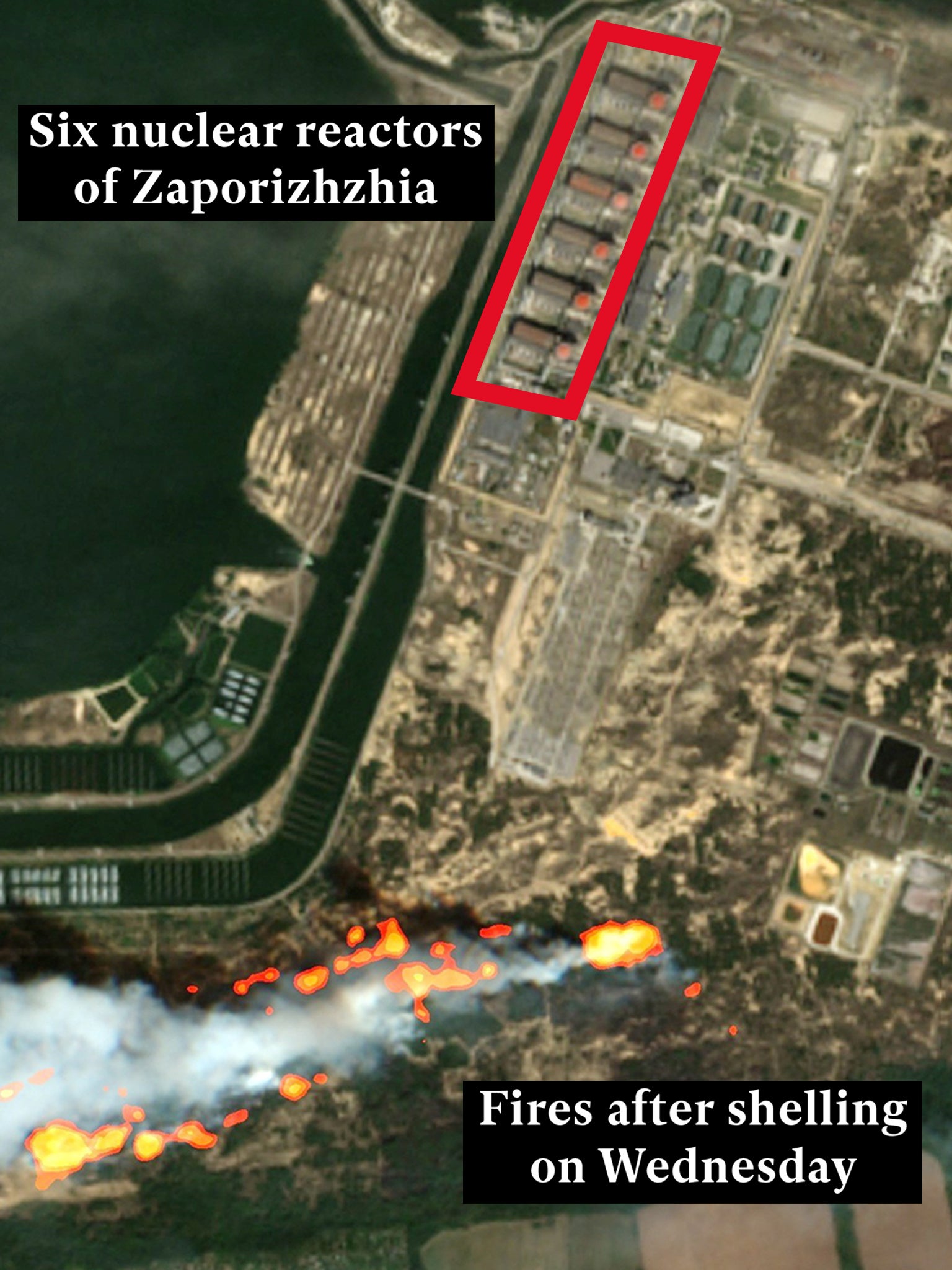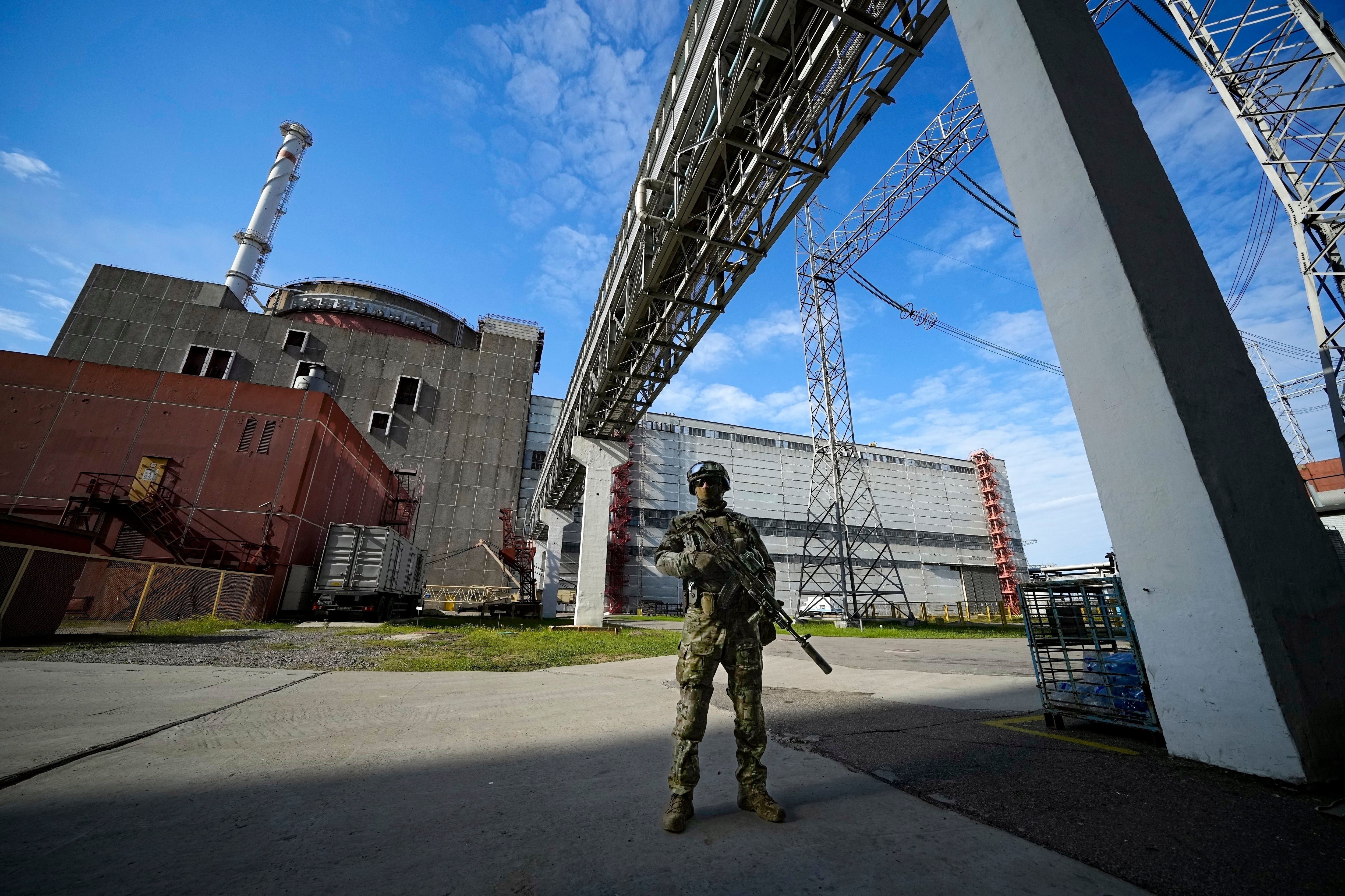Ukraine warns of ‘hydrogen leak’ risk at nuclear plant after Russian shelling
Moscow and Kyiv traded fresh accusations on Saturday of shelling around the plant
Your support helps us to tell the story
From reproductive rights to climate change to Big Tech, The Independent is on the ground when the story is developing. Whether it's investigating the financials of Elon Musk's pro-Trump PAC or producing our latest documentary, 'The A Word', which shines a light on the American women fighting for reproductive rights, we know how important it is to parse out the facts from the messaging.
At such a critical moment in US history, we need reporters on the ground. Your donation allows us to keep sending journalists to speak to both sides of the story.
The Independent is trusted by Americans across the entire political spectrum. And unlike many other quality news outlets, we choose not to lock Americans out of our reporting and analysis with paywalls. We believe quality journalism should be available to everyone, paid for by those who can afford it.
Your support makes all the difference.Ukraine has warned of a danger of hydrogen leakage following shelling by Russian troops.
The country’s energy agency warned a nuclear power plant currently controlled by Vladimir Putin’s troops is in danger of “hydrogen leakage and sputtering of radioactive substances”.
Energoatom, a state-run agency which runs all four of Ukraine’s nuclear facilities, revealed that two power units at Zaporizhzhia have been reconnected to the country’s grid.

The agency wrote on its website: “At the same time, due to the presence of the Russian military, their weapons, equipment and explosives at the power plant, there are serious risks for the safe operation of the ZNPP.
“As a result of periodic shelling, the infrastructure of the power plant has been damaged, there are risks of hydrogen leakage and sputtering of radioactive substances, and the fire hazard is high.”
Moscow and Kyiv traded fresh accusations on Saturday of shelling around the Russian-controlled Zaporizhzhia nuclear power plant in Ukraine, which has been a focus of international concern that fighting in the area could trigger a disaster.
Zaporizhzhia, Europe’s largest nuclear power plant, has been controlled by Russian forces since early March. Ukrainian staff continue to operate it and in recent weeks the two sides have traded blame for shelling near the plant.
Ukraine’s president Volodymyr Zelensky said on Friday the situation at Zaporizhzhia remained “very risky” after two of its six reactors were reconnected to the grid following shelling that caused the nuclear plant to be disconnected for the first time in its history.
“Let me stress that the situation remains very risky and dangerous,” President Zelensky said in his regular evening address, praising Ukrainian experts working to “avert the worst-case scenario”.
“Any repeat of yesterday’s events, meaning any disconnection of the station from the grid, any action by Russia that could provoke the disconnection of reactors, would once again place the station one step away from a catastrophe,” he said.

Energoatom said on Friday evening that both of the plant’s two functioning reactors had been reconnected to the grid and were again supplying electricity after they were fully disconnected on Thursday.
Russia, which invaded Ukraine in February, took control of the nuclear plant in March, though it is still operated by Ukrainian technicians working for Energoatom.
The Russian ministry, in its daily briefing, also said it had destroyed a large ammunition depot in Ukraine’s Dnipropetrovsk region that had contained US-made Himars rocket systems and shells for M777 howitzers.
The Russian Air Force shot down a MiG-29 aircraft in the eastern Donetsk region, the ministry said, and destroyed another six missile and artillery weapons depots in the Donetsk, Mykolaiv and Kherson regions.



Join our commenting forum
Join thought-provoking conversations, follow other Independent readers and see their replies
Comments